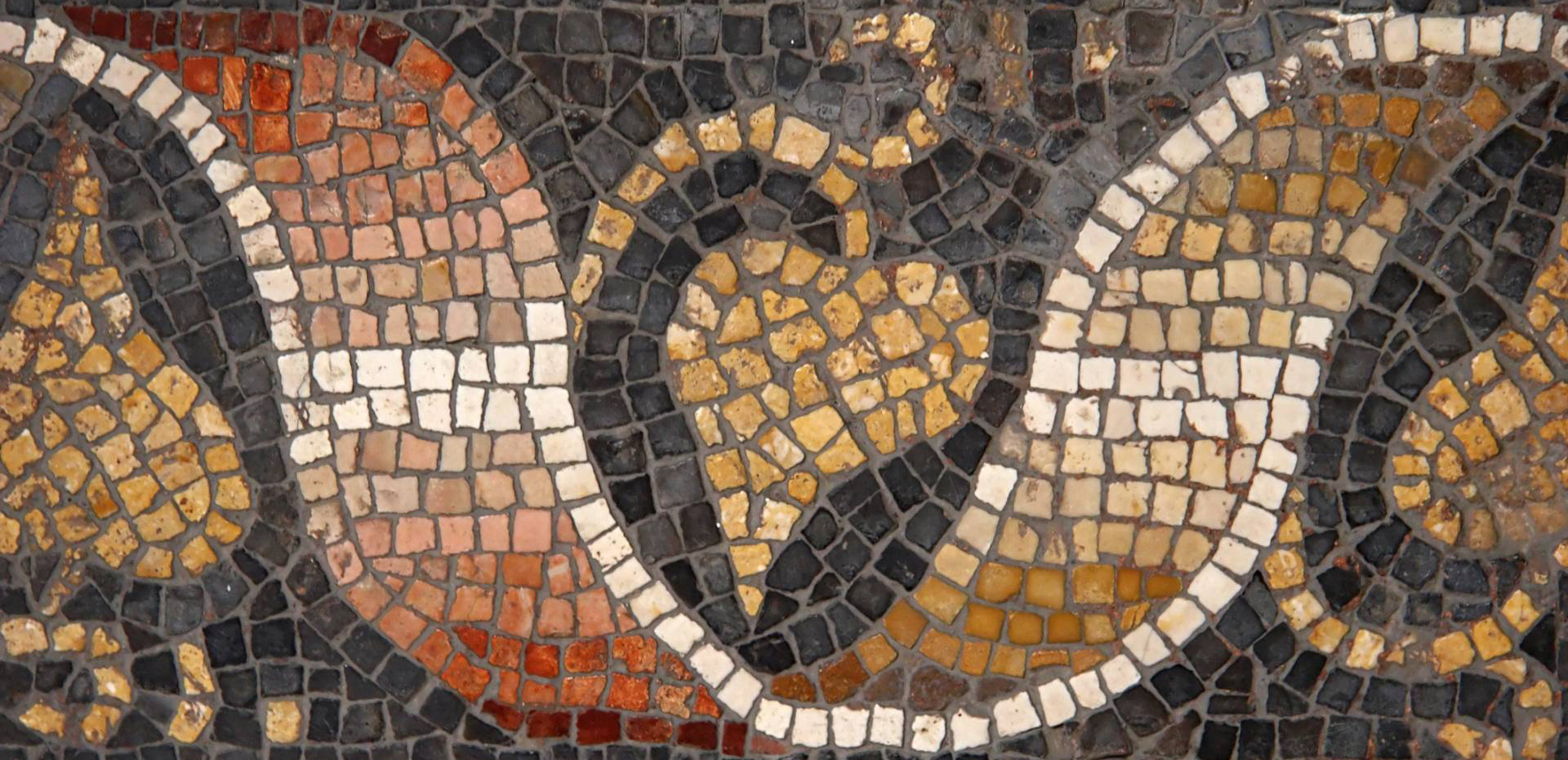SOMMARIO:
A. EVENTI
1. XV GIORNATA DI STUDI CIRILLOMETODIANI: “LA FIGURA DELLO ZAR NELLA STORIA E NELLA CULTURA DELLA SLAVIA ORTODOSSA (917-1917)” (ROMA, 19-20.05.2017)
2. CONFERENZA DELLA DOTT.SSA SIMONA MORETTI: “ROMA BIZANTINA. OPERE D’ARTE DALL’IMPERO DI COSTANTINOPOLI NELLE COLLEZIONI ROMANE” (ROMA, 07.06.2017)
3. VORTRAG VON PROF. DR. PANAGIOTIS AGAPITOS UND PROF. DR. DIMITER ANGELOV: “THEODORE II LASKARIS ON RULERSHIP, FLESHLY TEMPTATIONS, AND OTHER TOPICS: SIX UNEDITED ESSAYS IN COD. VINDOB. PHIL. GR. 321” (WIEN, 08.06.2017)
4. CONVEGNO INTERNAZIONALE: “DE RE MONASTICA VI: ‘IL TEMPO DELLE COMUNITA’ MONASTICHE NELL’ALTOMEDIOEVO'” (ROMA-SUBIACO, 09-11.06.2017)
5. WORKSHOP: “EPISTOLARY POETRY FROM LATE ANTIQUITY TO LATE BYZANTIUM” (WIEN, 10.06.2017)
6. PRESENTAZIONE DEL VOLUME “COLOFONI ARMENI A CONFRONTO. LE SOTTOSCRIZIONI DEI MANOSCRITTI IN AMBITO ARMENO E NELLE ALTRE TRADIZIONI SCRITTORIE DEL MONDO MEDITERRANEO” (ROMA, 16.06.2017)
7. CONFERENZA DEL PROF. BENTE KIILERICH: “LIGHT AND COLOUR IN LATE ANTIQUE PORTRAITS: PURPLE-EYED MARTYRS IN THE ROTUNDA MOSAICS” (ROMA, 21.06.2017)
8. GIORNATE INTERNAZIONALI DI STUDI “MEDIOEVO MEDITERRANEO”: “CALABRIA GRECA CALABRIA LATINA. SEGNI MONUMENTALI NEI SECOLI DELLA COESISTENZA (XI-XII)” (ROMA, 22-23.06.2017)
9. WORKSHOP: “THE RISE OF EARLY CHRISTIANITY IN GREECE AND THE SOUTHERN BALKANS” (BERLIN, 26-27.06.2017)
10. FESTAKT UND BUCHPRAESENTATION: “DAS CHRISTUSBILD. ZU HERKUNFT UND ENTWICKLUNG IN OST UND WEST” (WUERZBURG, 29.06.2017)
11. INTERNATIONAL CONFERENCE: “GEORGIA – BYZANTIUM – CHRISTIAN EAST” (TBILISI, 25-27.09.2017): CALL FOR PAPERS (DEADLINE: 30.06.2017)
12. CONFERENCE: “THE OTTOMAN CONQUEST AND KNOWLEDGE: A TRANSCULTURAL HISTORY” (CAMBRIDGE, 06-07.07.2017)
13. SECOND CONFERENCE OF BYZANTINE AND MEDIEVAL STUDIES (12-14.01.2018): CALL FOR PAPERS (DEADLINE: 01.09.2017)
14. XXV CONVEGNO ECUMENICO INTERNAZIONALE DI SPIRITUALITA’ ORTODOSSA “IL DONO DELL’OSPITALITA'” (BOSE, 06-09.09.2017)
15. INTERNATIONALE TAGUNG: “SASANIDISCHE SPUREN IN DER BYZANTINISCHEN, KAUKASISCHEN UND ISLAMISCHEN KUNST UND KULTUR” (MAINZ, 18-20.10.2017)
16. CONFERENCE: “UNDERSTANDING HAGIOGRAPHY AND ITS TEXTUAL TRADITION (LISBON, 24-26.10.2018): CALL FOR PAPERS (DEADLINE: 30.05.2018)
B. PUBBLICAZIONI
1. “DIRE DIEU. LES PRINCIPES METHODOLOGIQUES DE L’ECRITURE SUR DIEU EN PATRISTIQUE” (2017)
2. S. PAPAIOANNOU, “CHRISTIAN NOVELS FROM THE MENOLOGION OF SYMEON METAPHRASTES” (2017)
3. “HISTOIRE DE LA LITTERATURE GRECQUE CHRETIENNE DES ORIGINES A’ 451”, TOM. III: “DE CLEMENT D’ALEXANDRIE A’ EUSEBE DE CESAREE” (2017)
C. NOTIZIE
1. PREMIO “ANTONIO GARZYA” PER UNA TESI DI ARGOMENTO BIZANTINISTICO – BANDO 2017 (APPLICATION DEADLINE: 15.11.2017)
2. CALL FOR CANDIDATES FOR A POST-DOCTORAL RESEARCHER FOR THE PROJECT “THE CULT OF SAINTS: A CHRISTENDOM-WIDE STUDY OF ITS ORIGINS, SPREAD AND DEVELOPMENT” [LATIN EVIDENCE] (UNIVERSITY OF WARSAW; STARTING DATE: 01.07.2017; APPLICATION DEADLINE: 15.06.2017)
3. FELLOWSHIP ADVERTISEMENT AT THE CENTRE FOR ADVANCED STUDIES “MIGRATION AND MOBILITY IN LATE ANTIQUITY AND THE EARLY MIDDLE AGES” AT THE UNIVERSITY OF TUEBINGEN (APPLICATION DEADLINE: 15.06.2017)
4. MISE AU CONCOURS DE 3 OU 4 POSTES DE DOCTORANTS ET/OU POST-DOCTORANTS (UNIVERSITE’ DE MUNICH; DEADLINE: 09.07.2017)
5. PREMIO SISMED 2017 (APPLICATION DEADLINE: 31.03.2018)
